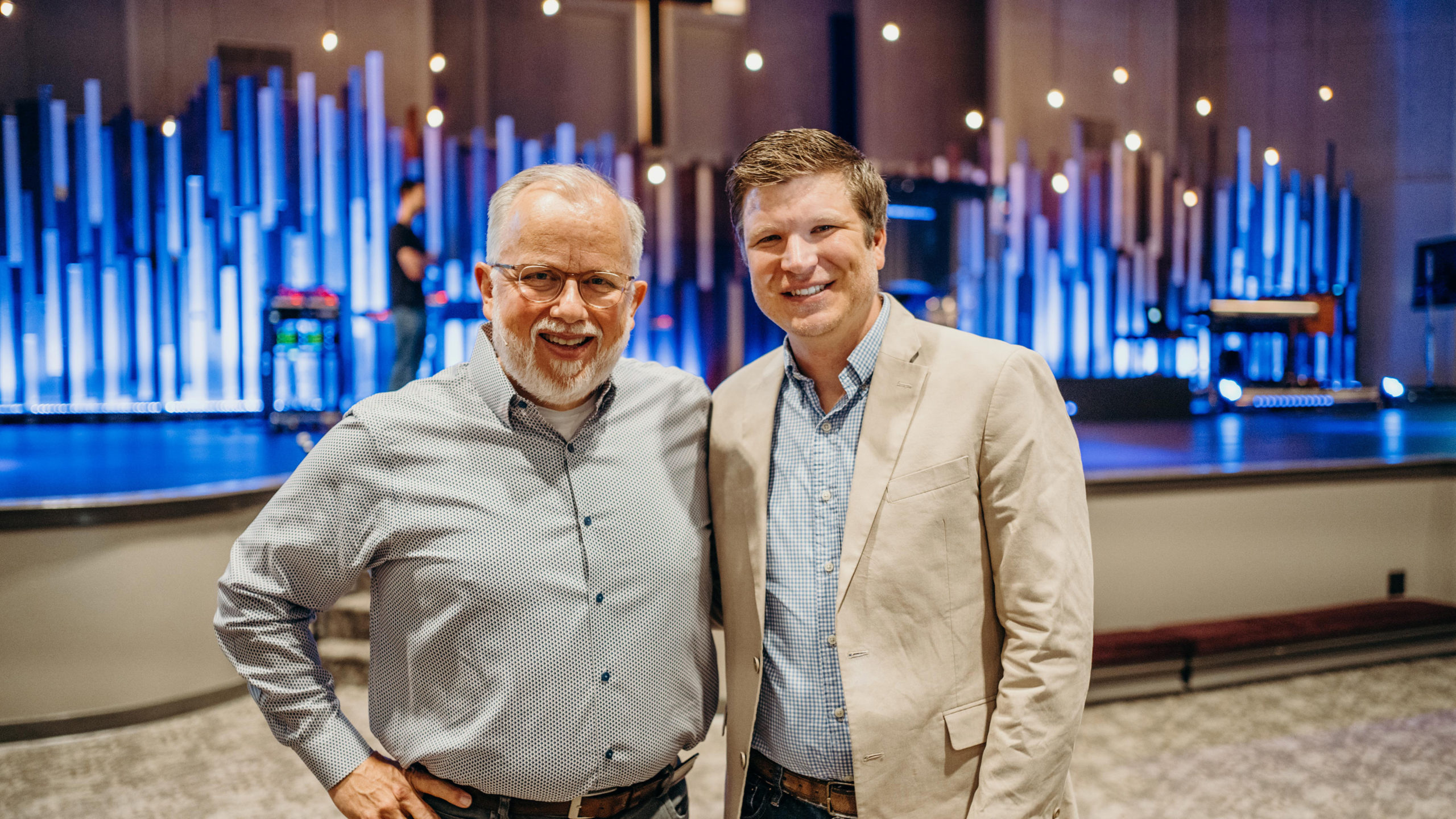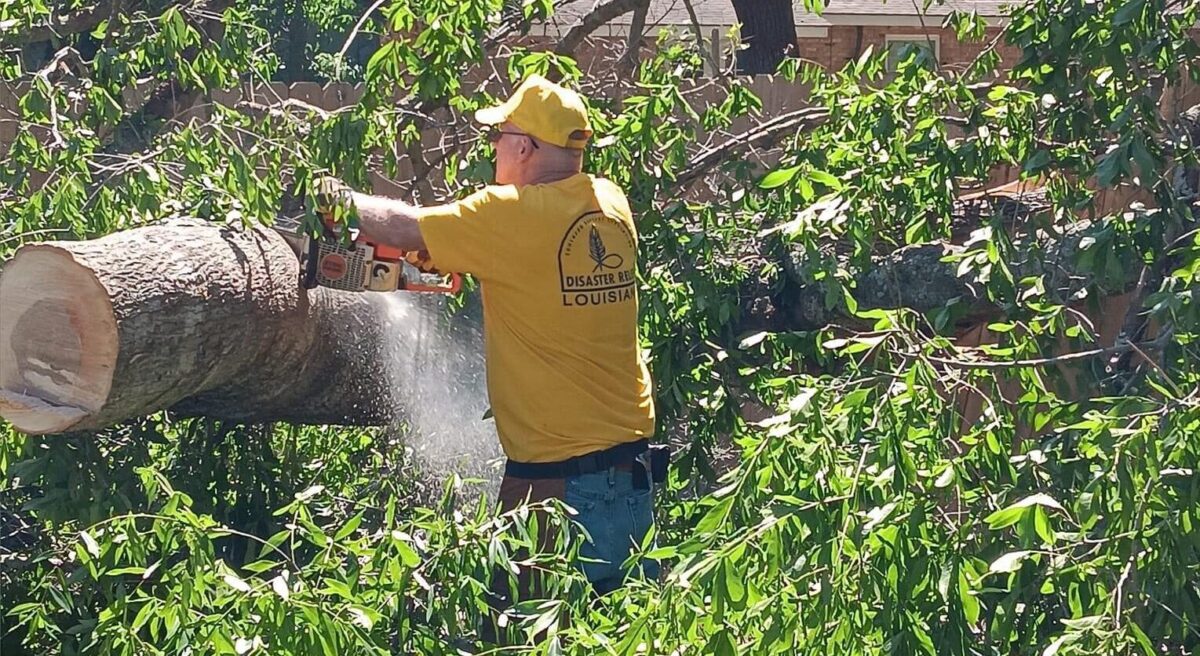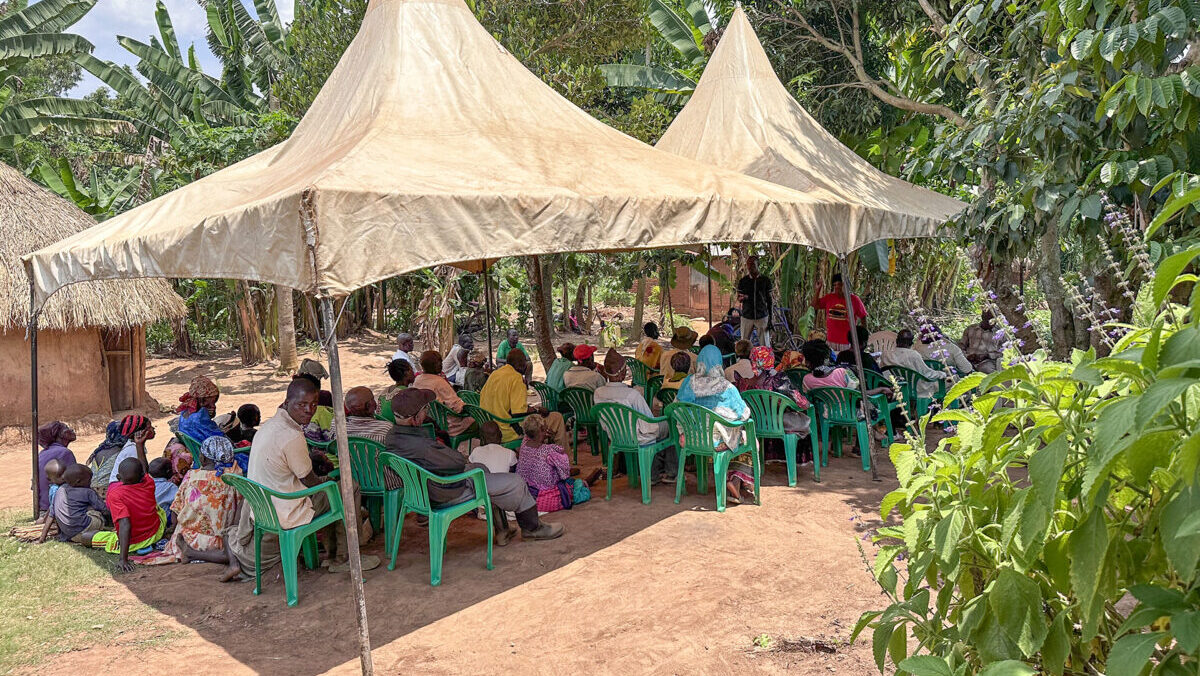Of the 61 men who have served as president of the Southern Baptist Convention since its founding in 1845, 41 were senior pastors. That includes current SBC president Ed Litton, pastor of Redemption Church in Saraland, Alabama (formerly First Baptist Church North Mobile).
The role comes with a travel and incidentals budget of $46,000 and some basic administrative help from the SBC Executive Committee office, but no official assistant or budget to hire staff specific to this role.
Balancing the existing pastoral responsibilities with the new presidential demands requires some creative maneuvering, and how and when to use the budget depends on other resources available to the person serving as president. If the SBC president is a pastor, then most often that means staff responsibilities are adjusted or a new position is developed on staff.
For Litton, the timing worked out well with Redemption having a staff position open for an associate pastor for community engagement, so Joshua Wester was hired to combine that assignment with assisting Litton in the SBC president’s role.
Wester previously served as chair of research in Christian ethics with the Ethics & Religious Liberty Commission and also has experience in church work.
“[Josh] helps me keep being the pastor of this church,” Litton said. “It frees me up and allows me to do [funerals and other] things you do as pastor.”
‘My priority’
“I still pastor a church in Alabama and am absolutely doing everything I can to make sure that stays my priority.”
Fred Luter, who was elected in 2012 and re-elected in 2013, said he kept the same priority during his years as SBC president.
“Even though I had requests to go other places, I was committed to being in my pulpit every Sunday morning. I thought that was important,” said Luter, pastor of Franklin Avenue Baptist Church in New Orleans. “I told the congregation I might not be here much during the week, but I guarantee I’ll be in the pulpit on Sunday mornings. They prayed for me, and they were really happy for me because it was such a historical road (being the first African-American elected to the position).”
Being able to still fulfill the duties of pastor while also taking on the responsibilities of SBC president requires help from others.
“Before you are elected, it is almost impossible to grasp just how time-consuming and demanding the role will be,” said Johnny Hunt, who was elected in 2008 and re-elected in 2009.
“The meeting, preaching and event invitations alone can be overwhelming.
“Serving as Southern Baptist Convention president was one of the great honors of my life and I grew to love and appreciate Southern Baptists more than ever. So it was an honor, but also had challenges,” said Hunt, who was pastor of First Baptist Church Woodstock, Georgia, at the time. “I was blessed by a church … that graciously allowed me to share my time with the larger Southern Baptist family, and I worked hard to balance that time so my role as senior pastor did not suffer.”
Extra help ‘was key’
“Jim Law, our executive pastor at FBC Woodstock, took on many extra responsibilities during that time, and he was key in helping coordinate many of the SBC responsibilities,” explained Hunt, who now serves as senior vice president of evangelism and leadership at the North American Mission Board.
Bryant Wright, who was elected in 2010 and re-elected in 2011, said he was able to manage the demands of the role by relying on Olivia Mahon, his executive assistant in the senior pastor’s office. Wright, who was pastor of Johnson Ferry Baptist Church in Marietta, Georgia, at the time, currently serves as president of Send Relief.
Wright described Mahon, who had enjoyed decades in a secular career before joining the Johnson Ferry church staff, as “fantastic” and “so capable,” adding that he believed Mahon was a “little sad” when his tenure as president ended. Wright also counted on a Johnson Ferry teaching pastor for assistance with committee appointments.
Like other SBC presidents who served prior to his two terms in the role, Wright prioritized being in his pulpit on Sunday mornings.
He had two additional goals during his tenure: to grow in his relationship with the Lord and to grow closer with his wife. “Those two relationships can suffer with all the demands,” he said.
‘Front-row seat’
As SBC president, Wright said, “I felt like I had a front-row seat to seeing how God was working through the many people and many churches” of the SBC. Johnson Ferry members, he said, also benefited from his time as SBC president, as they prayed for “convention matters like never before” and also could better understand “their calling to a bigger sense of mission.”
For Luter, it was more of a team approach with existing staff members Johnell Thomas (current pastor of membership) and Sam Young (current pastor of missions/evangelism and senior soldiers).
‘Team effort’
“Two of my associates here at the church helped me out … as did a secretary who came on to help my administrative assistant, Trena Williams,” he said.
The associate pastors took over the responsibility of teaching Bible study and officiating at various events. The administrative assistants handled scheduling, travel arrangements and other preparations.
All four also carried their routine responsibilities at the church, Luter explained. “They were able to spread it (the workload) around. That’s the great thing about a team effort, they were able to pass it around. It worked out well for us … and that freed me up to be able to take on the responsibilities of the president of the SBC, with the travel, with the phone calls, with the conferences.”
Steve Gaines, who was elected in 2016 and reelected in 2017, depended on church staff members as well during his time as SBC president. Pastor of Bellevue Baptist Church in Cordova, Tennessee, Gaines said, “I never missed a Sunday at Bellevue for any of my responsibilities as president of the Southern Baptist Convention.
“I was in Bellevue’s pulpit every Sunday except for the times when I was on vacation and the Sunday prior to the annual meeting of the SBC itself,” he said. “I depended on the staff at Bellevue to help give leadership to our programs while I was traveling during the week for the SBC.”
A team approach also worked best for Ronnie Floyd, who was elected in 2014 and reelected in 2015 when he served as pastor of Cross Church in Arkansas.
“I knew if I [served as SBC president], then I was going to give it my all … and that I would need help,” said Floyd, who now serves as president and CEO of the SBC Executive Committee. “You’ve got to have various people doing things.”
Along with two to three assistants in the office organizing different aspects of the role, Ronnie Parrott, who was part of the church’s Fayetteville campus ministry team at the time, became the official aide to Floyd for SBC matters.
Intensive study
Parrott’s role was realigned and he spent 90% of his time focused on communication, networking, travel and helping Floyd serve Southern Baptists.
Now pastor of Christ Community Church in Huntersville, North Carolina, Parrott received an intensive study of the inner workings of SBC life before stepping into his first pastorate, Floyd noted.
J.D. Greear also realigned a campus staff member’s role when he was elected SBC president in 2018.
Greear, who was reelected in 2019 and served a third term in 2020 because the annual meeting where the election takes place was canceled due to the pandemic, is pastor of The Summit Church in North Carolina. He was assisted in his SBC presidential role by Todd Unzicker as his chief of staff.
Unzicker, who now serves as executive director of the Baptist State Convention of North Carolina, was a campus pastor as well as pastor of sending prior to Greear becoming SBC president. Those roles were filled by others, so Unzicker could focus solely on logistics, media relations and convention relations for Greear, said Amy Whitfield, executive director of communications for the church. He also was instrumental in mobilization of the Who’s Your One? evangelistic emphasis and the Go2 international missions initiative for students, and in implementation of the Caring Well initiative for the SBC, she said.
Along with the day-to-day activities and initiatives that go along with the SBC president’s role, the person elected to serve also holds the responsibility to appoint certain committees.
According to the SBC bylaws, the SBC president — in conference with the vice presidents — recruits members of Southern Baptist churches to serve on the Committee on Committees, the Resolutions Committee and the Registration Committee.
Floyd noted the work involved with making the committee selections gave him the opportunity to pull from a network of trusted ministry leaders, specifically when appointing the Committee on Committees.
‘Team approach’
“We established a team of people to work on the Committee on Committees … the decision has great influence long term, positively and negatively,” he explained. “A network of our staff worked really hard to work with people across the country to get … the kind of people Southern Baptists deserve on the Committee on Committees. It’s great to have new people … but we also need people who know what they are doing. It’s a balance. … We also were able to expand the ethnic diversity on the committee.
“All that to say it’s a heavy responsibility,” Floyd shared. “It’s a team approach all the way.”
And exactly where the focus of the SBC president lands depends on the person, Floyd added.
“Some serve with more of a preaching platform, while others address issues and have matters they want to accomplish. It really depends on who the leader is as well as his personality and influence.
“For me, I just have a big ol’ passion for what we do [as Southern Baptists].”








